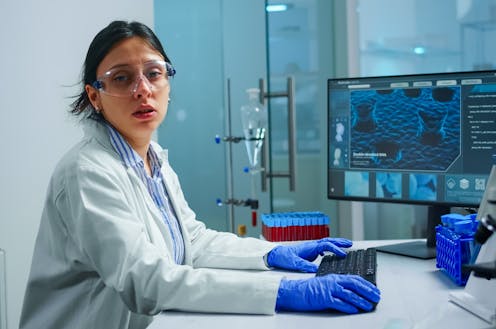Hit hard by the pandemic, researchers expect its impacts to linger for years
- Written by Sora Park, Associate Dean of Research, Faculty of Arts & Design, University of Canberra

The impacts of COVID-19 on Australian university researchers are likely to have consequences for research productivity and quality for many years to come.
According to an online survey of academics at the University of Canberra between November 2020 and February 2021, they have deep concerns about their ability to undertake research during the pandemic and the flow-on effects of this. The findings are consistent with those of Research Australia[1] from research in 2020 and 2021 and suggest Australia’s research sector will take a substantive hit from COVID-19.
The knowledge produced by university research generates an estimated 10%[2] of Australia’s GDP. Without access to JobKeeper[3] in 2020, universities across the sector cut back on casual staff and increased the teaching load of full-time academics. Combined with the challenges of working from home, this has had a real impact on research, not just immediately but in the longer term.
Read more: $7.6 billion and 11% of researchers: our estimate of how much Australian university research stands to lose by 2024[4]
Almost three-quarters (73%) of respondents reported teaching commitments increased in the transition to online learning. Almost two-thirds reported delays in project milestones (63%) and publication (62%).


















